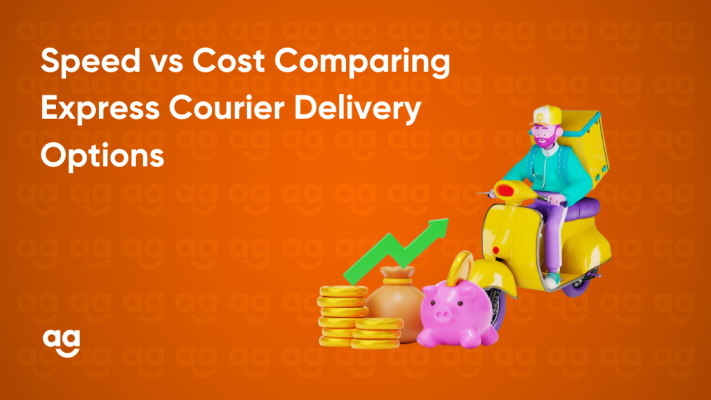Planning Pays Off: 5 Strategies to Get the Most Out of Your Delivery Speed Choice
April 17, 2025
5 min read
Everything You Need to Know About The Bulk Shipping Industry
The bulk shipping industry, including breakbulk and container shipping, will tremendously transform in the next few years. Dry bulk shipping is growing and is projected to be about USD 3.64 billion by 2028, with a CAGR of 4.09%. Here, we shall discuss the major trends set to shape the future of bulk shipping and logistics.

Digital Revolution and Automation
The scope of implementing new and emerging digital technologies in bulk shipping covers the whole value chain. AI, machine learning, and IoT are streamlining, making it more efficient and helping in better decision-making for operations. Automation throughout the ports and warehouses ensures less manual labor and brings about efficiency. Digital platforms connect different stakeholders, from businesses to carriers to port authorities, with effective communication and collaboration.
Sustainability and Environmental Impact
The bulk transport industry is increasingly compelled to reduce its environmental footprint. Harsher legislation, environmental consciousness among consumers, and drive for the most sustainable business practices bring to the front-line investments in fuel-efficient vessels, alternative fuels, and streamlined routes in reducing emissions. Waste reduction and recycling drives are also on the roll.
eCommerce and Last-Mile Delivery
The eCommerce boom significantly impacts the bulk shipping industry, particularly the container shipping segment. The demand for faster and more frequent deliveries has extended innovative shipping solutions, such as direct-to-consumer shipping and last-mile delivery services.
Supply Chain Resilience and Diversification
The global vulnerability has encouraged bulk carrier shipping companies to diversify their supply usages, reducing reliance on a single-source provider. Moreover, the transition also creates a demand for flexible and strong transportation capabilities that allow for an increase in breakbulk shipping for specialized goods.
eCommerce Boom and Changing Consumer Behavior
The expansion of the eCommerce industry is causing a positive shift in the shipping industry, especially the container shipping sector. Its growth led to the development of advanced shipping solutions, including shipping directly to the consumer and last-mile delivery services to address the emerging need for such measures in the shipping industry.
Collaboration and Partnerships
Industry players must collaborate to address the challenges and capitalize on the opportunities in an evolving B2B logistics landscape. Companies, carriers, port authorities, and technological providers are working on discovering new solutions and efficient operations. Sharing information, standardization of procedures, and partnerships create better sustenance and resilience for stakeholders in the industry.
In Summary
The future of bulk shipping is bright. However, technological advancements, environmental concerns, geopolitical factors, and evolving consumer preferences shape it. B2B logistics can address future challenges and opportunities by incorporating innovation, prioritizing sustainability, and adapting to changing market dynamics.
At Shipyaari, our platform connects you with an extensive network of carriers, ensuring efficient and cost-effective deliveries to streamline your B2B shipping operations. It comes with a full suite of B2B logistics and SaaS solutions, from expedited local shipping and quick overseas deliveries to drive success.
Frequently Asked Questions
International Bulk Shipping is marked by high risks, like customs regulations and import duties, that may incur geopolitical tensions. An experienced logistics provider can understand complex custom procedures and ensure punctual delivery.
There are several factors affecting the cost of bulk shipping, which are discussed below.
- Fuel prices: The fluctuations in fuel prices directly impact shipping.
- Freight rates: Freight rates are based on the demand and supply market forces.
- Currency exchange rates: Fluctuations in exchange rates may cause the shipping cost to increase.
- Port charges: Port charges differ with the port, even the cargo being shipped.
Optimization of bulk shipping operations is done through the following:
- Contacting shipping companies that have a history of reliability.
- Utilize track-and-trace and visibility capabilities.
- Enhance loading and stowage for cargo.
- Negotiate freight rate reductions.
- Be sensitive to movements in the market to modify the shipping strategy.
Bulk shipping plays a major role in the global trading of essential goods at relatively lower costs. It encourages economic growth through the exchange of goods between countries.
Suggested Reads
Hyperlocal Personalization: Tailoring Experiences for Local Customers
Introduction The eCommerce industry in India has witnessed a rapid growth of hyperlocal services in
Continue ReadingDec



















 Shipping
Shipping







